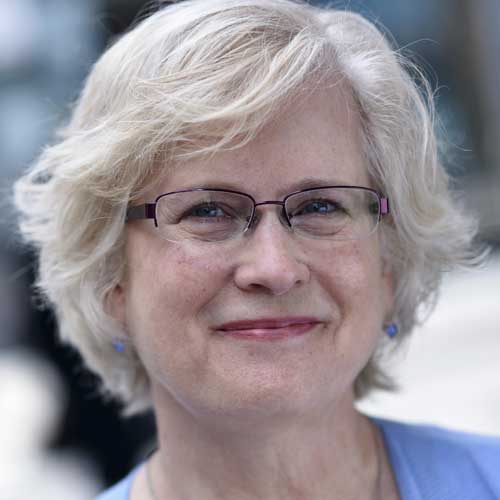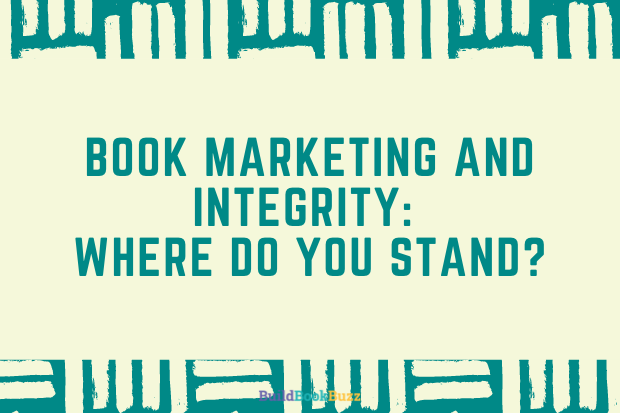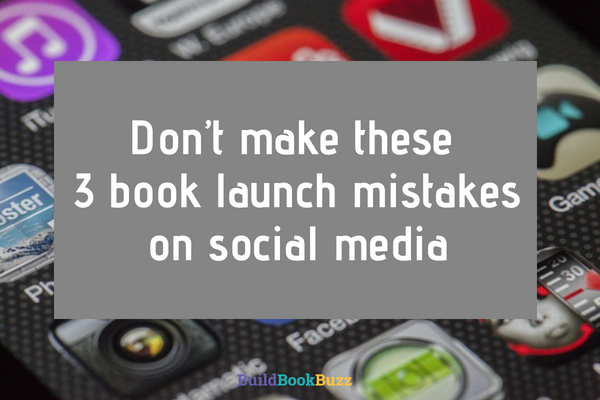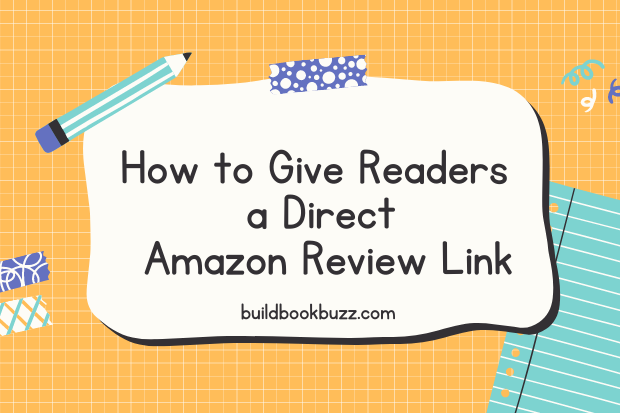Book marketing and integrity: Where do you stand?
Last week, an author asked me about a publicity service that promised to “get your own exclusive story published in FOX, CBS and NBC in 24 hours or get a full refund.”
The service’s website points out that you can then add “as featured in FOX, CBS, NBC” with the corresponding network logos to your website.
Instant credibility, right?
Or . . . is it?
What’s the deal?
The young marketer offering this opportunity charges $97. That’s not a lot of money to pay for this “as seen on” credential if this is something that is very important to you.
And I realize that for some, it’s very, very important.
I had my suspicions about the offer, though.
So did the author who contacted me.
That’s why I emailed the promoter. I didn’t doubt his claim and guarantee. I just didn’t think it was legitimate, by-the-book publicity.
What’s publicity?
More on what I learned in a minute. First, it helps to understand publicity, since this is presented as a “PR package.”
Publicity, a subset of public relations (PR), is news media exposure. The current buzz phrase for it is “earned media.” It’s journalistic content that mentions you that you didn’t pay for.
For example, you might be interviewed for an article or a radio or TV segment, or you or your book are mentioned in a short news item in a newspaper or an online news outlet.
Have you ever sent a press release that got picked up by media outlets? That’s publicity.
With publicity, you can’t control what gets used or when, but because there’s an implied editorial endorsement when you’re interviewed, quoted, or mentioned, it’s at least 10 times more credible than advertising. In other words, consumers are more impressed by publicity than by advertising.
[novashare_tweet tweet=”Consumers are more impressed by publicity than by advertising.” hide_hashtags=”true”]What’s advertising?
Unlike earned media, advertising is paid media. Because you pay for space or air time, you control what’s in the ad and when it appears.
Most of us can recognize an ad when we see one, whether it’s while watching TV or skimming an online news site. Sometimes, advertisers blur the line between advertising and publicity by paying for content that reads like a news article. That’s known as “native advertising.”
When it’s not obvious that it’s an ad, as is usually the case with native advertising, the Federal Trade Commission requires advertisers to disclose that it’s sponsored, or paid for, content.
I’ve written a fair amount of native advertising content for my local daily newspaper as freelance writer. In this article for a hearing center that I wrote, you’ll see a “Story from . . . “ disclaimer at the top. At the end, there’s notification that the newspaper’s editorial staff didn’t contribute to the article.
This is transparency.
What does it have to do with this “as seen on” offer?
So here’s the deal. The conventional use of “as seen on” or “featured on” with media logos refers to legitimate, bona fide publicity. It means that you were interviewed or mentioned by a journalist at that media outlet.
That’s not what this $97 “PR package” (his words, not mine) offer is about.
You’re paying $97 for advertising on a local network affiliate’s website.
After paying the fee, you complete a questionnaire. The marketer then pays a local TV station to place your Q&A (he calls it an article) on its website. It runs on the site with this disclaimer: Sponsored: Advertising Content.
Let’s talk book marketing and integrity
Paying for this type of placement on a local TV station’s website and claiming on your own website and marketing materials that you’ve been “featured on” Fox, CBS, or NBC or whatever is the same thing as buying an ad in People magazine and claiming you were featured in the pages of People.
I mean, technically, it’s accurate.
But it’s not what the average consumer thinks when they see “as featured in” – and for good reason. For most, it means that you are so good at what you do that a journalist chose to interview or feature you.
When we see those media logos on your site, we don’t know that you’ve paid a local TV station to run native advertising.
Think about it: What would you say if someone said to you, “Wow! Can I watch your appearance online?”
(By the way, you can add “as featured on” with logos to your site legitimately. And in a few weeks, I’ll tell you about a course I’ve created that will teach you how.)
What do you think?
Do you think translating paid space on a local TV station’s website to “as featured on” with network logos is misleading?
Do you think it’s ethical?
Do you think that authors and others who pay for this type of advertising have integrity?
The dude making the offer
I’m sure the young entrepreneur selling this service thinks it’s all on the up-and-up. He graduated from college in 2019, and might simply be too young and inexperienced to grasp that he’s basically helping people deceive their followers and connections.
I’ll add that he did respond promptly when I emailed him to ask how he could guarantee network television exposure. Rather than ignore my polite message or reply with lots of doublespeak, he explained the Q&A process (which is clearly outlined on his website, too) and provided three links to examples.
He’s not lying to customers, and I give him credit for that. And if people are willing to pay him so they can deceive their fans, why should I care?
Who cares?
I don’t care what his customers do.
But they aren’t people I would intentionally do business with.
Would you?
I’m a big fan of transparency. And I don’t like to be deceived. It makes me feel silly and foolish – and I do plenty of that on my own.

Plus, I couldn’t get away with deceiving you. I learned that lesson in college, when I tried to break the dining hall’s rules by smuggling a sandwich out in my purse.
Busted.
But that’s just me. What do you think? Are you comfortable paying for a Q&A on a local TV station’s website, then telling your readers you were featured on a major network?
Where do you stand? Please tell us in a comment. I’d like to learn from you.

Subscribe to the free Build Book Buzz newsletter and get the free special report, “Top 5 Free Book Promotion Resources,” immediately!









I know people who’ve spent thousands of dollars for these services. While they have very impressive logos on their websites, imposter syndrome is running in the background. I’ve earned my logos using HARO and prefer it that way.
It’s yet another way to use smoke and mirrors to impress. The ultimate result is no long-term or repeat client/customer relationships because there’s no substance behind the “ain’t I great?” facade.
Sandy
Being young is no excuse. These “book marketers” come in all ages and know what they are doing – preying on authors’ egos.
It took a lot of time, patience and hard work to write and publish your book. It takes even more to successfully promote one when there are thousands of books published each day. Use your head. Even a display ad in a small community paper – the kind stores and restaurants use every day – will cost thousands of dollars.
Book promotion is difficult. Book promotion is time consuming and frustrating. Whether you handle it yourself or you choose to hire professionals, nothing that makes bold claims such as a $97 promise of exposure should be trusted. It smells like a scam because it is a scam.
You’re so right about the hard work, Stephanie!
The guy offering this service delivers what he promises, so in that sense, it’s not a scam. I’d say that the people paying him are the scammers. They know exactly what they’re doing here — intentionally misleading people — and yet, they do it anyway.
Sandy
Well, the tricky thing about suggesting that the people buying the services know they are scamming, is that with POD options, some authors may very well not understand what they are getting, depending on their education level and life experience. My 20 year old autistic son would be the person to fall for this because while he has an IQ of 130 (considered high) he is really smart in some things and really dumb in others. He doesn’t grasp the difference between ads, native ads, and an interview on a blog. He barely grasps the difference between paid, earned, and owned media. I’ve been providing marketing basics training for enough authors to know most of them are in similar boats even after publishing 3-5 books. They are just throwing everything at the wall, trying to find what sticks.
I have encountered so many authors who are ignorant about how the media works in legitimate situations, so I know why they fall for these scams. Yes, some authors know exactly what they are buying when they purchase the “As Seen on” junk, but I also know entrepreneurs who thought it made sense to pay vanity publishers $50,000 for publishing their books and wasted $5,000 on one month of publicity services with the same publisher to sell the book only to see about 20 books sold – the family and friends guaranteed bubble.
Frankly, most of my clients come from referrals from small legitimate publishers who are honest with their authors that there won’t be much publicity and they need to find other options. As the authors cast out for options and they realize publicity campaigns are both more expensive and truly a full-time endeavor to do it correctly, they look for quick results anywhere they can find them. They are gullible because they don’t want to give up the dream of being a famous, well paid author.
What they forget is, regardless of whether the book is published traditionally,in a hybrid or fully self published, they are entrepreneurs. Most entrepreneurs fail. Selling a book is no different. Be OK with that possibility before you publish.
Heidi & Stephanie, I agree, and it’s because most self-published authors aren’t immersed in this and don’t know how it works that I write these kinds of articles. They can then do what they want with the information and knowledge.
Sandy
I would love to have my little, kid lit, book “Lenny the Lion Meets Fluffy the Kitten,” which is available on Amazon.com, touted on TV, but I certainly do not want deceive anyone in the process. BTW, how was the sandwich? Did you eat it in the dining hall?
Steve Logan
Loganartstudio@gmail.com
Steve, have you contacted your local TV station talk shows? Early morning and noon news programs are good opportunities for “local author publishes children’s book that teaches a lesson about X” segments.
As for the sandwich…it was for my visiting boyfriend, so no, I didn’t eat it, because I had just finished my own meal. (Thanks for asking!) Interestingly enough, it was the dining hall director who knew just by my face that I was up to no good (by dining hall standards, anyway…), but he was friendly about it and we ended up becoming pals as a result. He often hired me to babysit for his kids after that!
Sandy
Honestly, I think enough people have scammed the systems that most readers don’t trust the traditional systems. Same with the Amazon best sellers and even the NYT Best Seller list. Fortunately, I think that opens the door for a more level playing field for the average author. When readers have many different resources to choose from to find good books, that gives many different authors extra space. Readers have gotten savvy. They know to be suspicious when an author has Amazon bestseller tags on his/ her site that is riddled with spelling errors.
This particular smoke and mirrors trick I’m writing about here DOES remind me of authors who sold 5 books in a niche Amazon category in a single day, then claimed “best-seller” status on their website and marketing language. The correct phrase is “Amazon category best-seller,” but you won’t find many using that. And yes, readers are wising up to that.
Sandy
I have been a book publicist for years. I stop all conversations with potential clients the minute they claim to be best-selling authors on Amazon because it means nothing and it shows me I don’t want them as clients.
Give me $200 to purchase books, the right time of day and a title in an obscure category, and I can make the book an Amazon “best seller” for an hour or so. Absolutely meaningless.
I’m right there with you, Stephanie. Thank you for telling it like it is! A couple of books I’ve collaborated on have been category best-sellers but I don’t claim that status because by *my* standards, it’s misleading.
Sandy
I’m big on transparency and honesty — which this process is not. And I’d never use it.
Playing devil’s advocate, though, what about makeup, toupees, Spanx,shoe lifts, dental veneers …?
I think you’re comparing apples to oranges, Kathy. If I tell you I’ve been “seen on” NBC, you think I’ve got some serious chops, right? I must really know what I’m talking about, and that convinces you to hire me. And then, of course, I can’t meet your expectations because of my trickery. But the fact that I alter my appearance in a way that gives me confidence has no impact on my work product. I’m either still good at what I do…or I suck at what I do. Right?
Sandy
From unethical (this sort of claiming clout on news networks) to misleading (claiming a writing “award” or “badge” that is just completing a course on NaNoWriMo or a paid-for contest) in the forefront of book promo is a thorn under my saddle. I figure if a book needs this fakery up front it’s not likely an outstanding read.
Very good point, Kay.
Sandy
Well, this story has lots of adages that I added to.
There’s a sucker born every minute.
Honesty is the best policy.
If it looks like a duck and quacks like a duck, it’s probably a duck. In this case don’t fall for it.
Beware of a wolf in sheep’s clothing. The wolf is out for himself.
Don’t count your chickens. Namely write the best book ever and let your publisher do the marketing. Sounds simplistic but it’s real. Too many focus on the exteriors like getting their names out before they write a good book. It’s just the way it is.
I agree that you want to focus on writing the best book you can. I always caution authors not to rely on their publisher for marketing support, though, because it’s not always available beyond sending out review copies and doing some media pitching during the launch. Whether you’re traditionally or self-published, most of the marketing falls on the author. So plan for that.
Quack, quack,
Sandy
Sandra’s reply with regard to claiming legitimate editorial visibility via this paid-for-play placement is on target. However, some feel that if positioned properly and stated as “seen on” will give a book cover and author visibility to a wide audience of potential readers.
The difference is in how the author represents the placement, not the placement itself.
Thanks, Patricia. I think that if authors believe that adding “as seen on” with media logos to their website will give them visibility to a wide audience, they will be disappointed. These are just graphics on a website. If the author isn’t doing what’s required to attract traffic to the site, those logos won’t impress anyone because nobody will see them.
Will some readers discover their paid ad on a local TV station’s website? Maybe!
Sandy
My book’s description on Amazon starts with, “IN A WORLD WHERE INSTANT LOVE IS PRIZED, WHAT IS INTEGRITY WORTH?” and one of the main threads through the novel is exactly that: integrity is a hard value to hold onto when your rivals and your world do not have it.
So what?
These things – and buying guaranteed reviews – are for the desperate, and don’t really gain you what you want: long term fans who love your work. Because they can’t!
But I guess it might trick someone into buying and reading. Not worth it if you’re trying to leave a legacy, and it can backfire if you’ve angered a reader enough for them to leave the kind of review you deserve.
The only defense of your young man is his age and possible true ignorance. I’m also assuming he writes the ad, pays for it at less than $97, and makes a few bucks in the process. It’s still scamming. It’s still dishonest. And it’s hard to believe he doesn’t know, when his ad copy is so carefully written.
You’ve nailed it, Alicia. I love this statement: “integrity is a hard value to hold onto when your rivals and your world do not have it.” So wise. So true.
Thank you for weighing in.
Sandy
Authors should know they are only hurting themselves in the long run with this sort of trickery. As has been said here, readers are smart. They see all this faux hype, glitz and glamor, buy the book and then say, “What the @#%$&@!!! This book stinks. I’ll never buy that author’s books again!”
Amen, Neil! You are SO right. Instead of creating a fan, they’ve alienated someone who feels conned. How is that good for anyone?
Thanks!
Sandy
So I just received a publishing contract for my book and my publisher will be doing some of the marketing but I need to market my book as well. Is advertising or hiring a publicist to get the book out there unethical? I thought that authors are supposed to market and get their book out there. I’m very confused because I never heard that advertising or paying for a publicist was unethical. I really don’t want to stay quiet about my book. I worked so hard to get here.
Deb, I’ve confused you with this article. Advertising and publicity are completely ethical.
This article explains that you pay for and control advertising. And everyone knows it’s advertising. And advertising isn’t a publicist’s job. The publicist’s assignment is to get you interviewed by the press. While you pay for your publicist’s time to pitch you to the media, you do not pay the media outlet to interview you. It’s up to the radio or TV station, magazine or newspaper, online news site, or blogger to decide if you have something of value to share with their readers.
It’s when you DO pay for an interview through questionable strategies I’ve written about here, and pretend that you didn’t pay for it, that you shift into questionable ethics.
Sandy
OK thanks. I was under the impression that a publicist does more than just arrange interviews- I thought they also get your book out on social media and find other ways to advertise. I guess I need to do some research.
Some will handle social media for you, too, but most focus on publicity. You might find these articles on the site helpful:
https://buildbookbuzz.com/7-things-you-need-to-know-about-working-with-a-book-publicist/
https://buildbookbuzz.com/should-you-hire-a-book-publicist/
https://buildbookbuzz.com/how-one-author-got-ripped-off/
Sandy
Publicists do a lot more than arrange interviews, but each book and each campaign is different. What a publicist does for an author with a traditionally published book, a well-funded campaign and a publisher making the major decisions is worlds different than when authors have small publishers or self publish.
My advice is start interviewing publicists in your area now. Whatever you do, start the publicity campaign before the book is published. You and your publicist will be at a disadvantage if the book is several months old, which is when most authors think about hiring publicists.
Publicists raise awareness of books. They can’t guarantee the media will choose to write or broadcast anything about the books. That’s part of the reason such coverage is prized. You earned that coverage.
Well said. And that’s why it’s misleading to pay for something that looks like media coverage, but isn’t, and then pretend you didn’t pay for it. Smoke and mirrors.
Sandy
Thank you for this timely discussion. It seems that the line between advertising and promotion gets ever more blurred as it also gets ever more difficult to get your book noticed among the stream of new books every year and every day.
BuildBookBuzz is a great resource for us authors.
You’re so right, Gabrielle. Keep your eyes open for those who use smoke & mirrors!
I’m so glad the information here is helpful. Thank you for that feedback!
Sandy
I just came across this gentleman you are referring to on Facebook. SMH. Misinformation for sure. Keri-Rae Barnum and I had a brief chat about this topic and it sounds like the three of us are on the same page. Thanks for writing a great article.
Glad to hear it, Renee.
Sandy
Thank you for clarifying a point many newer authors may not be aware of.
On a side note, have you ever bought a book because there was an ‘as seen on’ tag on it? I haven’t.
I’ve never seen an “as seen on” tag on a book cover. Do you have an example? I do see it on author websites referring to authors being interviewed by the media.
Sandy
Thank you for sharing. A very interesting topic. Have a beautiful weekend! xx Michael
You’re welcome and same to you!
Sandy